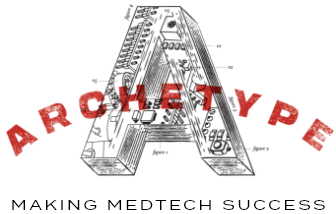As early as possible: The timing dilemma for the medtech innovator
In the world of medical device development, we're constantly bombarded with advice to "start as early as possible." While well-intentioned, I believe this phrase to be unhelpful, lacking in practical application and with the potential to create tension in cross-functional teams. As someone deeply involved in the product innovation and development process, I've heard this phrase countless times – often on podcasts! - and it always raises the same question: What does "early" actually mean in the context of a complex medtech project?
Developing a new medical device is a complex process involving hundreds of interconnected activities. Each of these activities relies on specific inputs and generates outputs that feed into subsequent tasks. It's a carefully choreographed sequence, where timing is everything and any attempt to shift tasks "earlier" without considering the entire process can be very disruptive.
In reality, during a MedTech development, the project leaders are the only people with a holistic view of the entire process, understanding the intricate dependencies between tasks. The other experts are focused only on their own part, so an “early as possible” decision made by anyone other than the project leader is likely to have a knock-on effect elsewhere.
Why early?
The desire to start early stems from a valid concern: identifying and resolving issues early can save time and money in the long run. However, without a clear understanding of the project's critical path and the interdependencies between tasks, "early" becomes a nebulous concept that can lead to frustration and inefficiency.
I've encountered situations where functional experts, eager to get a head start, demand a "laundry list" of inputs before they can commit resources. This often leads to lengthy negotiations and delays as we work together to define the minimum viable information needed to initiate a task without undue risk.
So, how do we reconcile the desire for early starts with the realities of a complex medtech development?
- Clearly defined inputs: Functional experts must clearly define the essential inputs for their activities, distinguishing between "must-haves" and "nice-to-haves."
- Scalable requirements: Input requirements should be scalable, recognising that a Class I device will have different needs than a Class III implant.
- Risk assessment: Teams must assess the risks associated with starting a task with incomplete information and balance those risks against the potential benefits of an early start.
- Phased approach: Consider a phased approach where tasks can begin with a subset of inputs and receive additional information as it becomes available.
- Respect the project leader: Work closely with the project leader to understand how specific tasks fit into the overall project schedule and resource allocation. They are the only person with an overall view.
While starting early can be beneficial for a long car journey to the coast, it's crucial to remember that medtech development is a very different beast with many moving parts. Project leaders, with their holistic understanding of the project, are best equipped to determine the optimal timing for each activity. By working collaboratively and defining clear inputs, risks, and outputs, you can achieve a balanced approach that maximises efficiency and minimises delays.
Ultimately, the goal is not to start as early as possible, but to start as effectively as possible. And that requires a shared understanding of the project's complexities and a collaborative approach to balancing resources and risks across the entire development process.



